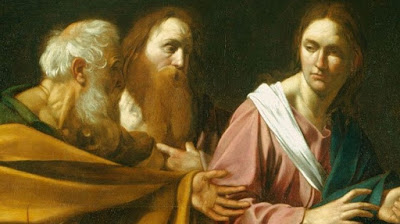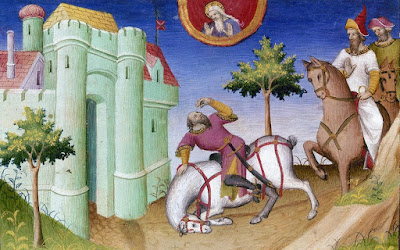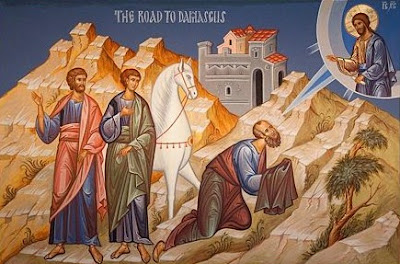Homily for the 3rd Sunday in Ordinary Time, January 26, 2020, Year A

Detail, The Calling of Saints Peter and Andrew , Caravaggio, 1603–1606. Fr. René J. Butler, M.S. La Salette Missionaries of North America Hartford, Connecticut ( Click here for today’s readings ) One of the most beautiful texts in the whole Bible reads: “Wherever you go I will go, wherever you lodge I will lodge. Your people shall be my people and your God, my God. Where you die I will die, and there be buried.” People are sometimes surprised to learn that these words are not spoken between two lovers. They are the words of Ruth, to her mother-in-law, and simply mean: I will never leave you. That hardly matters. The classical musical setting by Gounod is often heard at weddings. The Weston Priory version is sung by the monks to each other as a pledge of mutual fidelity in their monastic life. The text suits any commitment of persons to each other. The response of Simon, Andrew, James, and John to the call of Jesus seems to have been wordless. They j


